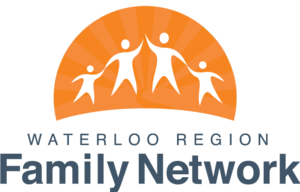
We collect basic website visitor information on this website and store it in cookies. We also utilize Google Analytics to track page view information to assist us in improving our website.
The Ask A Self-Advocate program is a supportive initiative for individuals with exceptionalities and the people who support them. Participants can engage with me, Cristina Stanger, WRFN’s Self-Advocacy Liaison, to discuss their goals, challenges, and any questions they may have. By sharing my lived experiences, I aim to provide insights and ideas that can help guide them on their journey.
This program was born from my own experience of seeking resources after receiving my diagnoses of exceptionality in adulthood. I wanted a positive and hopeful space where I could connect with someone who understood my challenges. Collaborating with the Waterloo Region Family Network, we created the Ask A Self-Advocate program, which has been running since 2018.
The program is designed for self-advocates (individuals with exceptionalities), their family members, and professionals. We welcome anyone experiencing any form of exceptionality, whether or not they have a formal diagnosis. Open to individuals of all ages, I have had the privilege of meeting self-advocates as young as 9 and as old as 60, reflecting WRFN’s mission to support all life stages.
Our conversations are client-centered, meaning we discuss what matters most to you. Topics can range widely, from “Why is it so hard for my child to brush their teeth?” to “How did you decide to start a family knowing there is a genetic component to your exceptionality?”
Common themes include:
Appointments are usually 50 minutes long (or less, if desired). I will start by introducing myself, I check-in with my understanding about you or your family, and I’ll ask if there’s anything else they’d like to share. After that, we can dive into questions or topics of interest; these questions can be provided to me in advance, or we can just see where the conversation takes us when
we meet.
The meeting format is flexible and chosen by the client. We can meet virtually, in-person, or by phone. Some individuals prefer support exclusively through email. I adapt appointments to meet various needs, whether by adjusting the environment (like dimming lights) or modifying social dynamics (such as sitting off to the side).
When working with youth, I accommodate different family preferences. Sometimes I meet with a parent first, followed by a session with the youth, or I may meet them together. In some cases, I meet the youth independently to facilitate a more comfortable connection.
Support through the AASA program can be a single session or multiple sessions, either closely spaced or spread out over time (e.g., returning months or years later as life evolves). A written summary is provided 1-2 weeks after each appointment, detailing discussed topics, terms, and resources for future reference.